The start of jury selection in Donald Trump’s hush-money case marks the first time that a former president has stood trial on criminal charges. Here’s a look at some of the people who are likely to play a key role in the case.
Donald Trump, defendant
The Republican nominee for president is the defendant in the case. Prosecutors allege that he orchestrated a $130,000 payment to the adult film star Stormy Daniels when she threatened to go public with allegations of an affair on the eve of the 2016 election, and then conspired with others to cover up the payment. He is charged with 34 counts of falsifying business records. Trump denies he had an affair with Daniels.
Stormy Daniels, key witness
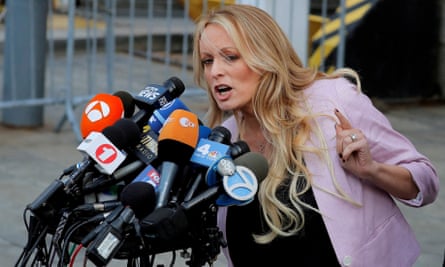
Daniels, an adult film star whose real name is Stephanie Clifford, says she met Trump in 2006 at a celebrity golf tournament. Daniels was 27 at the time and Trump was 60 and Daniels has always said the sex was consensual.
Just before the 2016 election, Daniels said she was approached by Michael Cohen, Trump’s lawyer at the time, and offered $130,000 not to disclose the alleged affair. She accepted the money. “The story was coming out again. I was concerned for my family and their safety,” Daniels told 60 Minutes in 2018.
After the Wall Street Journal broke the story of the payment, Daniels sued Trump to release her from the non-disclosure agreement. She said it was void because it had not been signed by Trump.
Michael Cohen, key witness
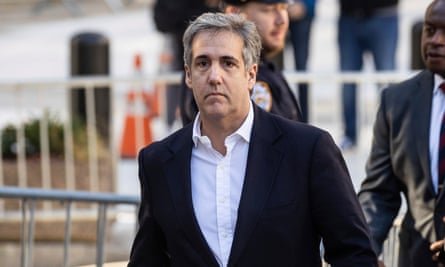
Cohen was once a lawyer for Trump and one of the former president’s most loyal lieutenants and enforcers. He facilitated the payment to Daniels, funnelling the $130,000 to her through a shell company called Essential Consultants LLC. Trump later arranged to pay him back in monthly payment installments of $35,000. Trump allegedly worked with Cohen and Trump organization officials to conceal the purpose of those payments on business records.
Earlier in 2016, Cohen facilitated a similar payment to a different woman, Karen McDougal, a former Playboy model who also claimed to have had an affair with Trump. In the McDougal case, Cohen arranged for McDougal to be paid $150,000 by the National Enquirer.

Cohen initially said that he paid for the scheme with his own money. “Neither the Trump Organization nor the Trump campaign … reimbursed me for the payment,” he said in 2018. “What I did defensively for my personal client, and my friend, is what attorneys do for their high-profile clients. I would have done it in 2006. I would have done it in 2011. I truly care about him and the family – more than just as an employee and an attorney.”
But in 2018, Cohen pled guilty to a range of federal crimes, including campaign finance charges. At a plea hearing, Cohen admitted that he had facilitated the payments to the women at the direction of Trump. He served a three-year prison sentence, during most of which he was on home confinement. He was also disbarred in New York in 2019 after pleading guilty to lying to Congress.
Cohen continues to face serious credibility issues. Last month, a federal judge suggested Cohen may have committed perjury as recently as last October: testifying in a civil case against Trump then, Cohen said he hadn’t committed tax evasion even though he pled guilty to it in 2018. Trump’s lawyers are expected to make Cohen’s credibility a centerpiece of their case.
David Pecker, key witness
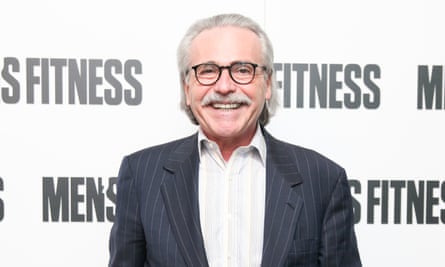
Pecker was a key Trump ally who served as the CEO of American Media Inc (Ami), the publisher of the National Enquirer.
Pecker helped Trump by purchasing the rights to potentially damaging stories and then never publishing them, a practice known as “catch and kill”. In 2015, Ami paid $30,000 to Dino Sajudin, a former doorman at Trump Tower, who was trying to sell a story that Trump had fathered a child out of wedlock.

In June of 2016, Ami paid Karen McDougal, a former Playboy model, $150,000 to suppress a story about an affair. Ami bought the story with the understanding that Trump would reimburse them, according to the indictment. Cohen would later release a tape of him and Trump discussing repaying Pecker.
In 2016, Dylan Howard, then the editor-in-chief of the National Enquirer, alerted Pecker that Daniels had potentially damaging information about Trump, according to the indictment. Pecker advised Howard to reach out to Cohen, and Cohen subsequently negotiated the deal with Stormy Daniels’ lawyer.
Allen Weisselberg, key figure
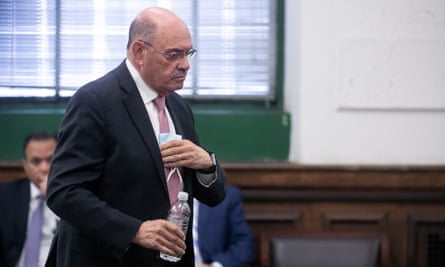
Weisselberg, 76, is the former chief financial 0fficer of the Trump Organization. He worked for the company for more than 50 years, and has refused to turn on Trump even as he’s already been sentenced to prison twice. He played a key role in concealing the purpose of Trump’s repayments to Cohen, according to the indictment.
after newsletter promotion
As the election approached in 2016, Trump didn’t want to make the $130,000 payment to Daniels himself, so he allegedly asked Weisselberg and Cohen to figure out a plan. The two men eventually agreed Cohen would be repaid a total of $420,000. Weisselberg arrived at that number so that Cohen could claim the payments as income and still come out ahead after paying taxes. He approved Cohen’s request for reimbursement and the Trump organization subsequently cut Cohen three checks for “legal expenses” from January to March of 2017. The remaining nine checks came directly from Trump’s trust, and were signed by Trump and Weisselberg.
Weisselberg is not charged in the hush-money case, but has already faced considerable legal trouble. He pled guilty in 2022 to tax fraud and served 100 days of a five-month prison sentence. Earlier this month, he was sentenced to an additional five months in prison after pleading guilty to perjury during Trump’s civil fraud trial.
Jeffrey McConney, key witness
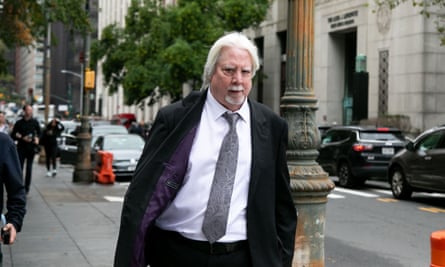
McConney is the former controller of the Trump Organization who worked at the company from 1987 until 2023. McConney forwarded Cohen’s invoices to the Trump Organization accounting department with instructions to record them as legal expenses, according to the indictment.
McConney testified during the Trump civil fraud trial last year, breaking down in tears and saying he left his longtime job after investigations into Trump’s business dealings.
Alvin Bragg, district attorney
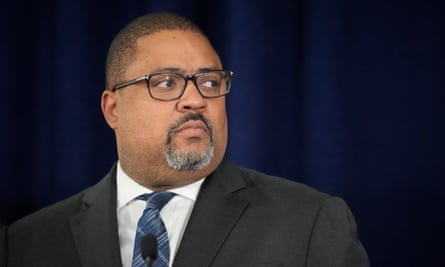
Bragg, a Democrat, was elected in 2021 to be the top prosecutor in Manhattan. Before running for office, he was largely an unknown prosecutor. During his campaign, he touted how many times he had sued Trump, and this trial will be the biggest moment in his career. Friends have described him as apolitical, though that hasn’t stopped Trump from attacking him as a political prosecutor.
He has already had a rocky relationship with this case. When he took office, a criminal investigation into Trump was already underway. But Bragg declined to move quickly ahead with that case, which was focused on Trump inflating his financial assets, prompting the prosecutors to resign and publicly make their feelings of displeasure known. Bragg instead ultimately moved forward with the hush-money case.
Juan Merchan, judge
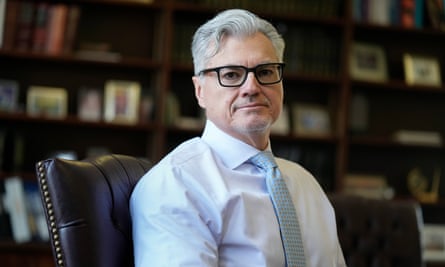
Merchan, the judge overseeing the case, has served as a jurist in New York for nearly two decades. He was appointed to the New York family court in 2006 and has served as a criminal trial judge since 2009. He was born in Colombia, grew up in New York City and served as a prosecutor before becoming a judge.
He has shown a willingness to move the case along quickly, rebuffing efforts by Trump and his lawyers to delay the trial. He expanded a gag order against Trump after the former president repeatedly attacked his daughter, who has worked for various Democratic political candidates.
Todd Blanche, Trump’s lawyer
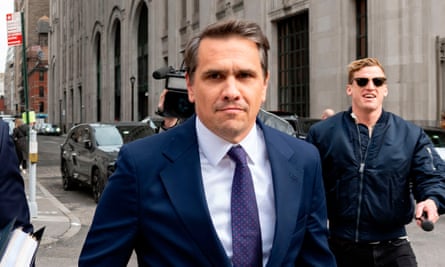
Blanche is a former federal prosecutor who gave up his partnership at a white-collar firm to represent Trump. In addition to the hush-money case, he is helping represent Trump in the two federal criminal cases he faces.
While he is a well-respected lawyer, according to the New York Times, this will only be his second trial as a defense lawyer.